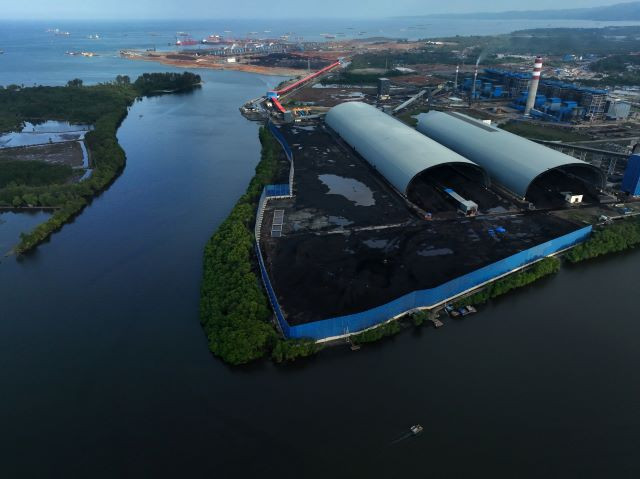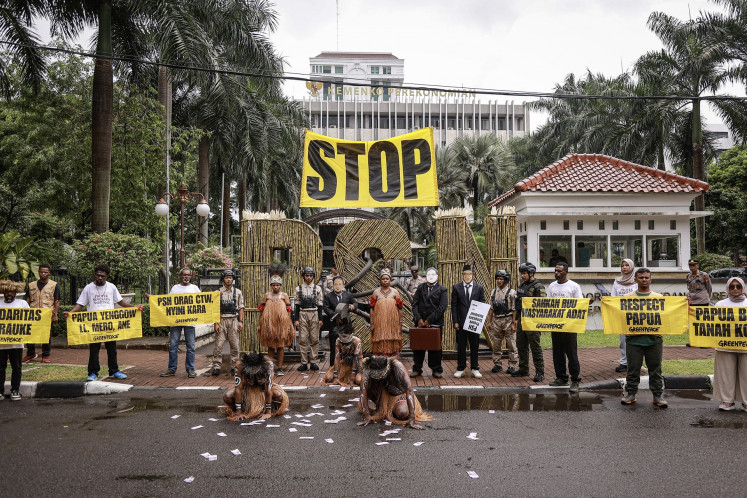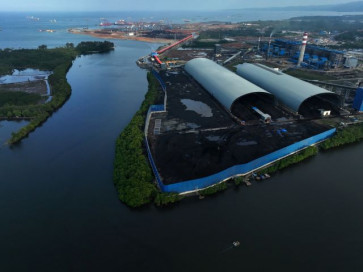Popular Reads
Top Results
Can't find what you're looking for?
View all search resultsPopular Reads
Top Results
Can't find what you're looking for?
View all search resultsNickel downstream industry needs greening strategy
As Indonesia's mineral processing industry continues to grow, it is crucial for the government to shift to rewewable energy and promote less carbon-intensive processes in the domestic nickel downstream industry, so it can attract climate-conscious investors while contributing to the country's climate goals.
Change text size
Gift Premium Articles
to Anyone
I
ndonesia’s greenhouse gas (GHG) emissions surged 21 percent in 2022, according to research group Climate Action Tracker (CAT), due to the massive operation of new off-grid coal-fired power plants (CFPPs). Notably, the Institute for Essential Services Reform (IESR) reported that almost 70 percent of the country’s off-grid coal plants were used specifically in the nickel smelting industry.
Consequently, Indonesia's CAT rating fell from “highly insufficient” to “critically insufficient”, indicating its potential contribution to global warming exceeding 4 degrees Celsius by 2100.
Amid vast growth in the domestic mineral processing industry, off-grid CFPPs are flying under the radar as Indonesia strives to decarbonize its power sector.
Projections by the IESR indicate that the capacities of off-grid CFPPs will grow by more than 20 gigawatts (GW) to produce an estimated 197 metric tons of carbon equivalent (mtCO2e) in emissions by 2030, contributing 41 percent to overall emissions in the power sector. This could jeopardize the aspirational target for power sector emissions to peak by 2030, as in the Just Energy Transition Partnership (JETP).
Ultimately, the heavy reliance on CFPPs has resulted in a high footprint of embedded carbon emissions for Indonesia’s nickel smelters.
These carbon-intensive smelters burden Indonesia’s quest to participate in the global supply chain of electric vehicle (EVs), moving the country farther away from achieving its climate goals. The high carbon intensity of Indonesia’s nickel production also acts as a barrier to foreign investment, deterring investors that prioritize low-carbon solutions.
For instance, the United States, through its Critical Minerals Agreement (CMA), tends to direct its Inflation Reduction Act (IRA) incentives to countries with strong labor, human rights and environmental standards. Furthermore, the European Union’s recently adopted battery regulations clearly set a preference for a low-carbon footprint in battery manufacturing.



















